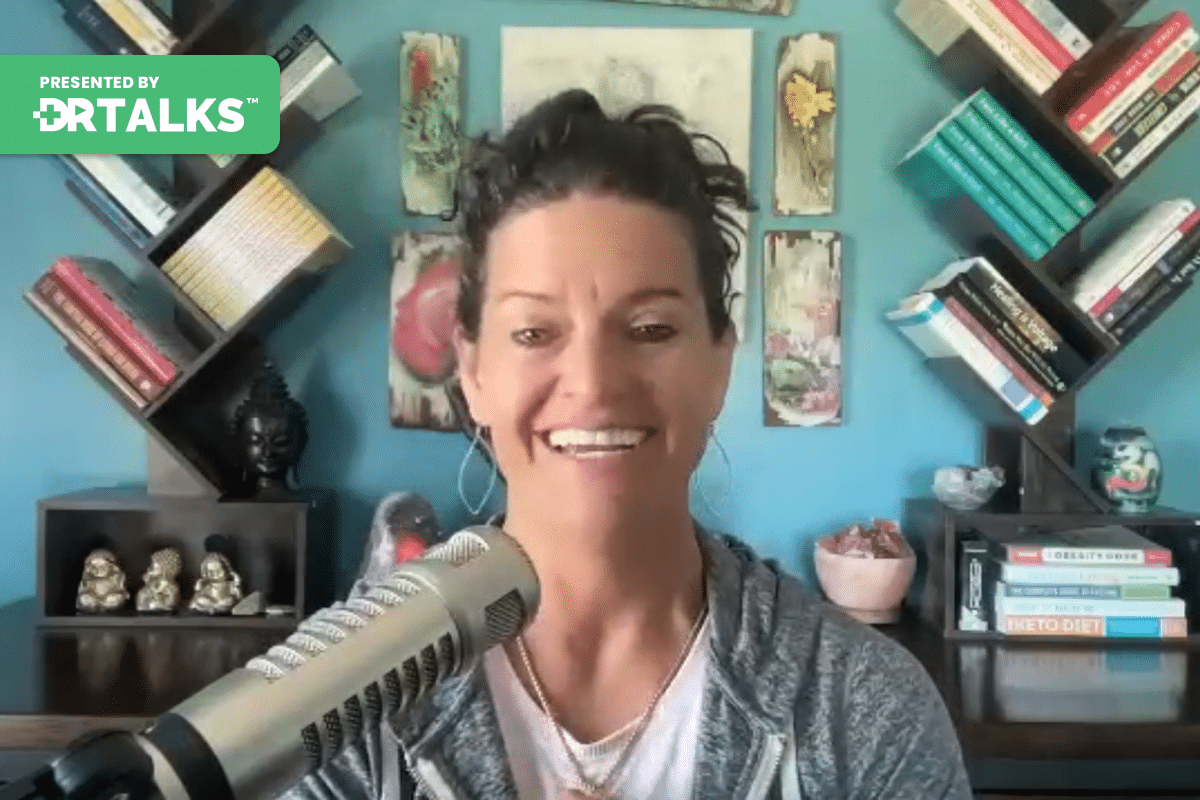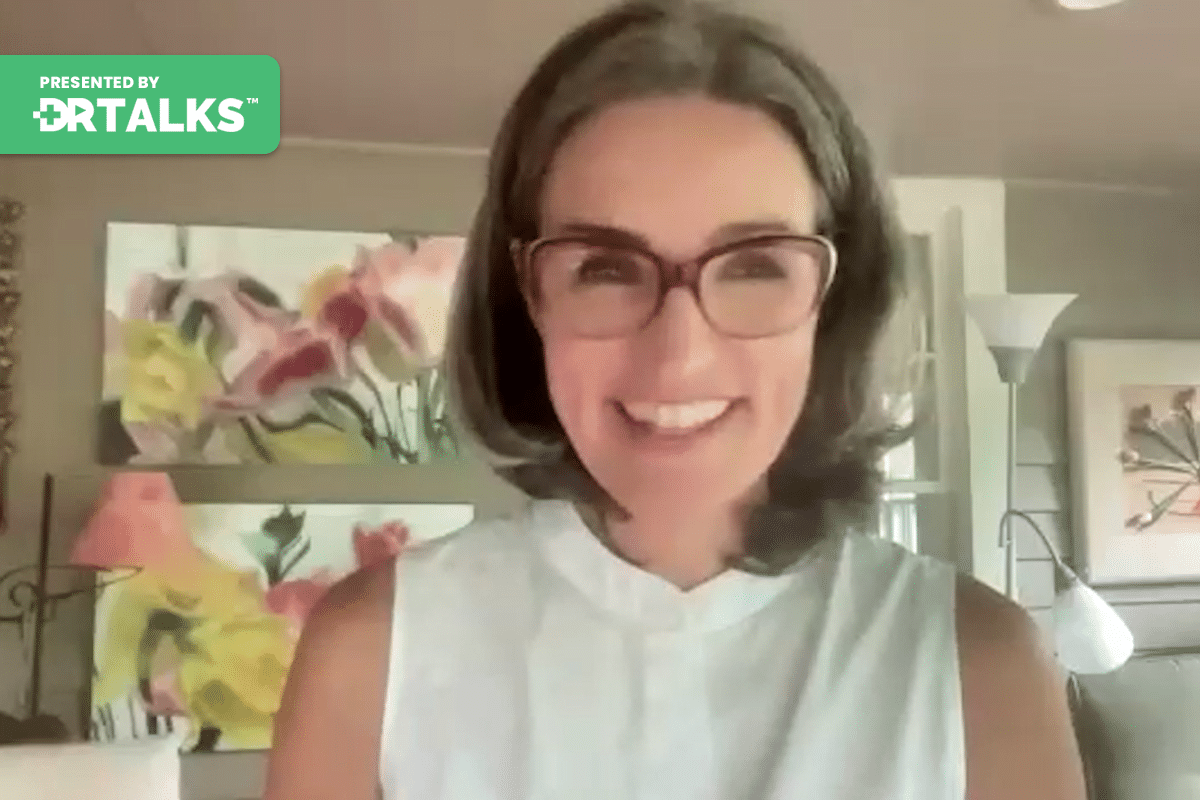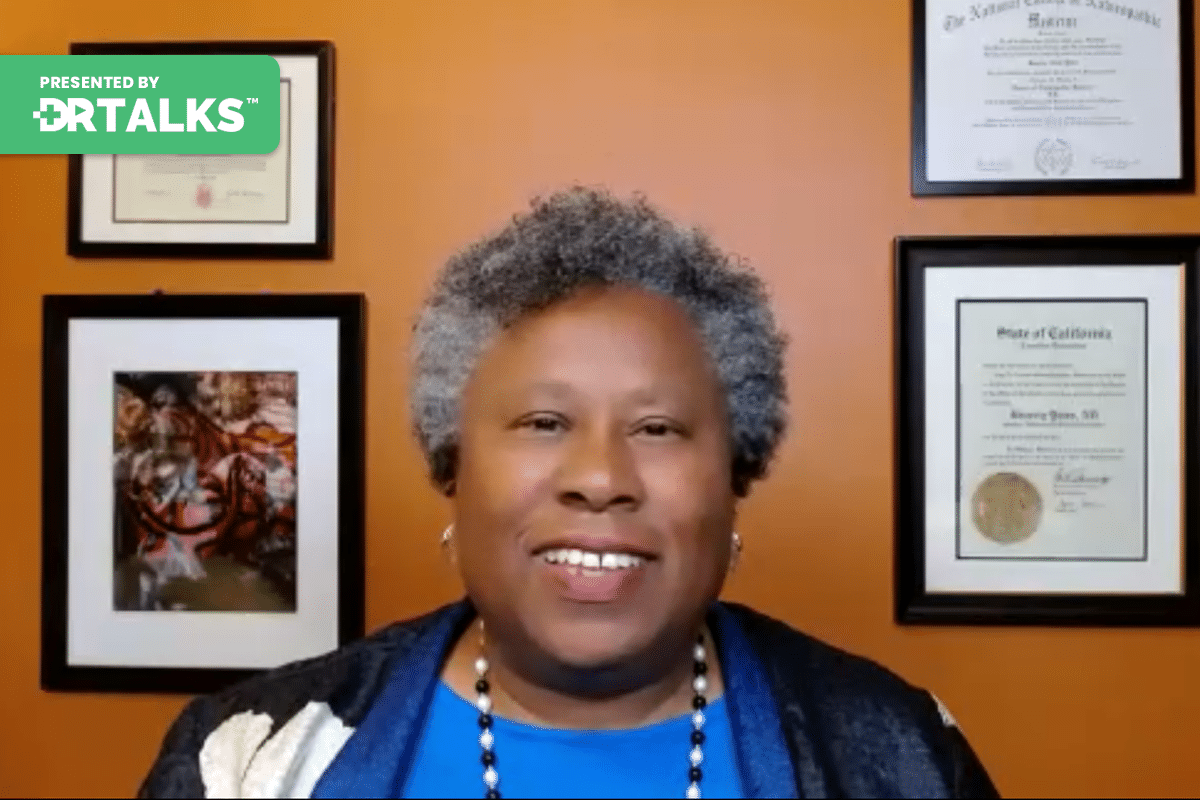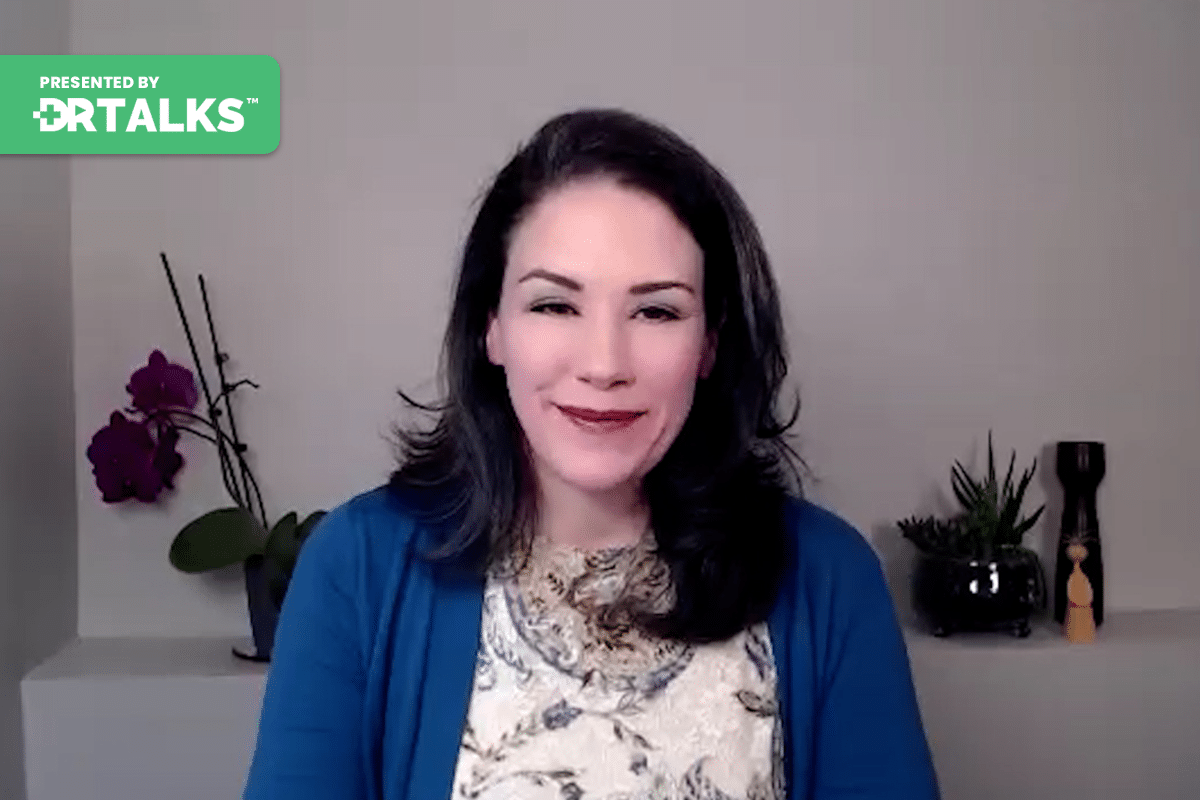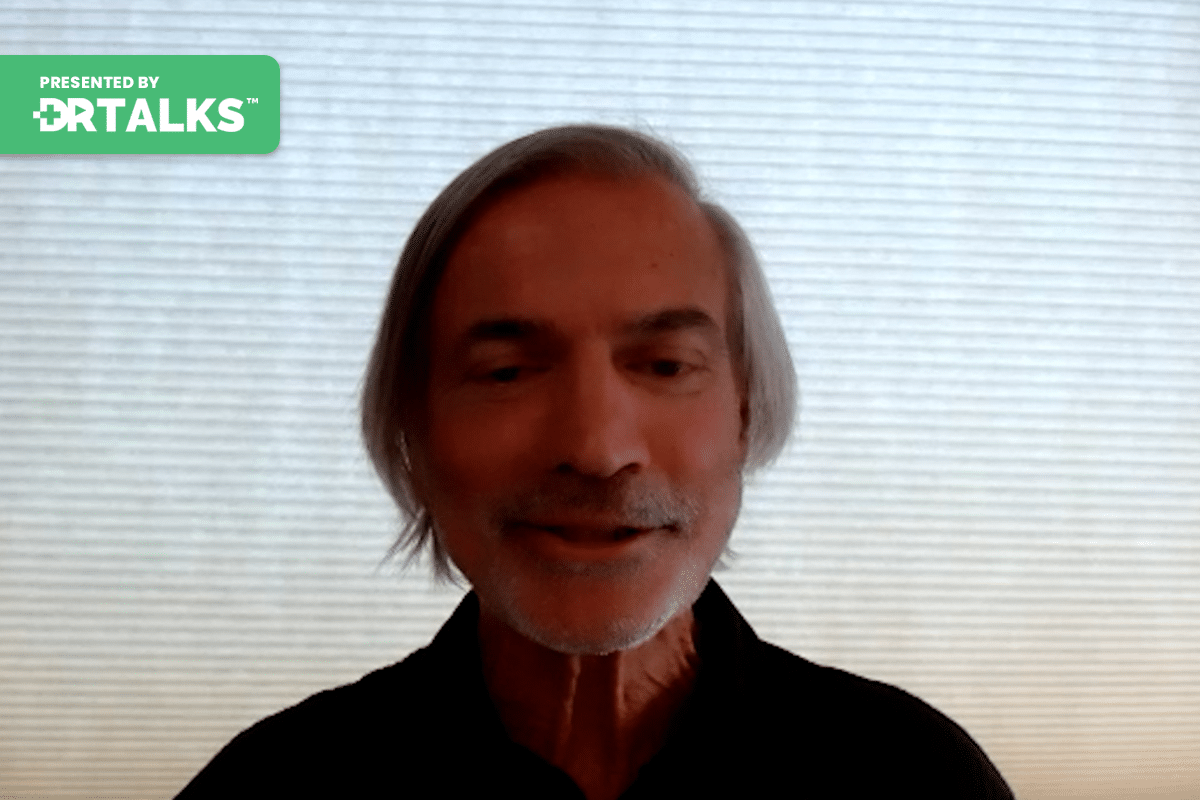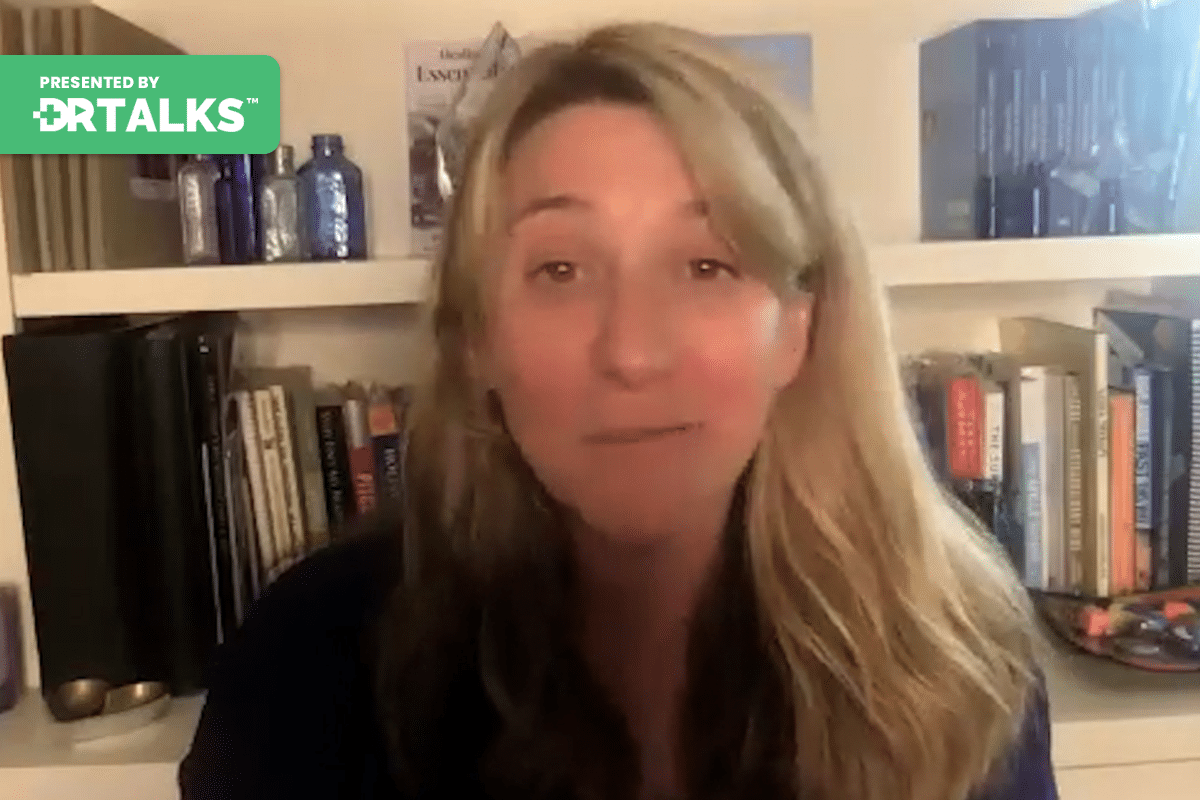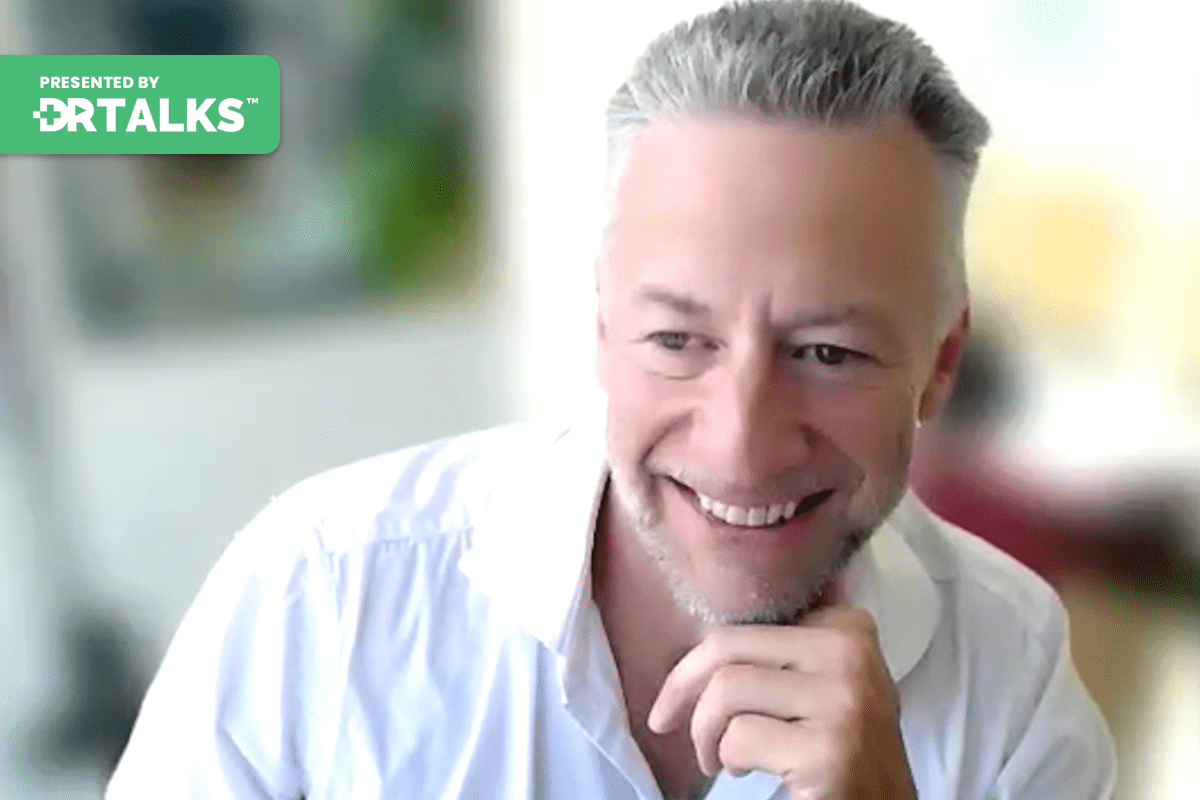Join the discussion below
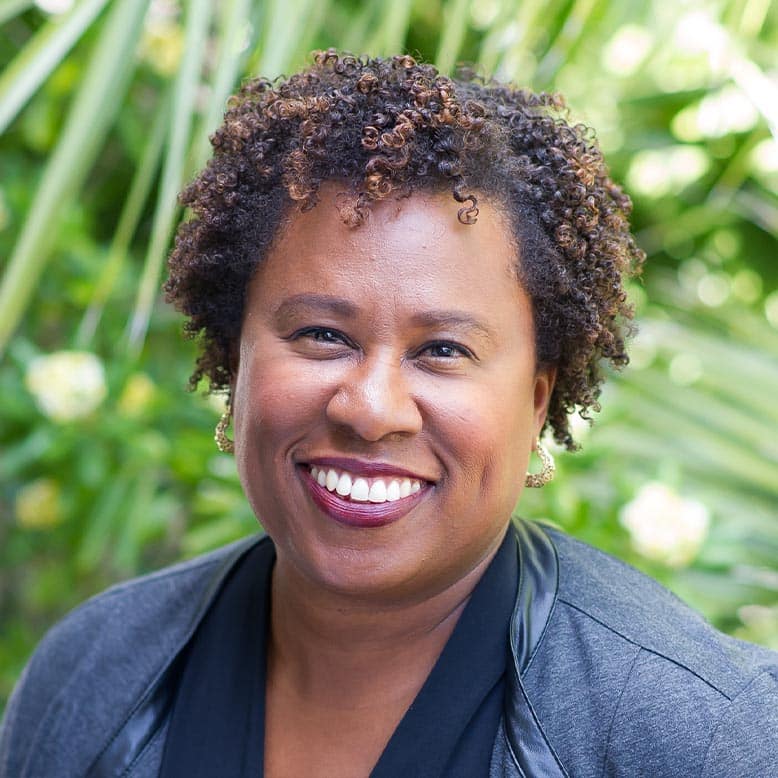
Beverly Yates, ND is a licensed Doctor of Naturopathic Medicine, who used her background in MIT Electrical Engineering and work as a Systems Engineer to create the Yates Protocol, an effective program for people who have diabetes to live the life they love. Dr. Yates is on a mission to... Read More
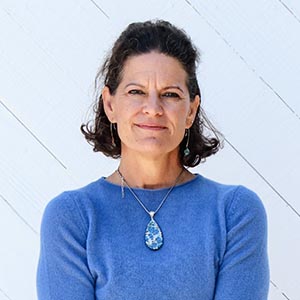
Dr. Mindy Pelz is a renowned holistic health expert and one of the leading voices in educating women about their bodies. She is on a mission to start a women’s health revolution! Teaching her signature “5-Step Approach”, Dr. Mindy has empowered hundreds of thousands of people around the world to... Read More
- Explore the benefits of fasting and how it can lead to a healthier life for women of all backgrounds
- Discover the top benefits of fasting and its role in balancing diabetes
- Learn the essential steps for women to put in place fasting
- This video is part of the Reversing Type 2 Diabetes Summit
Related Topics
Aging, Balance, Balancing, Chronic Illness, Diabetes, Fasting, Hormone Health, Menopause, Reset, Weight LossBeverly Yates, ND
Hi, everyone. Welcome to the Reversing Type 2 Diabetes Summit. I’m your host, Dr. Beverly Yates, ND. It is my distinct honor, privilege and pleasure to interview the amazing Dr. Mindy Pelz. She has absolutely been a leader with helping women figure out their metabolic regulation, how fast can work for them, etc., especially women in the perimenopausal menopausal moment in our life span. It’s one of those things where we absolutely need more science, more research, and more caring about this transitional phase for women, because there’s a lot that changes that Either we aren’t warned about, we find out by accident or we realize, Oh, that’s what my grandmother or my aunt or my mother was trying to tell me. I didn’t think I was too young.
Mindy Pelz, DC
Oh, yes. No. Like I’m sitting over here going, Yes. Like all the women that tried to tell us we didn’t listen to, At least I didn’t.
Beverly Yates, ND
If we could go back in time. That’s right. Buckle up. Whether you are male or female, doesn’t matter. Take notes. Because this is part of our human lived experience. We got to make it so everybody understands how menopause works. In the same way we need to have education about menstruation, things that go on for men people who are in transition, like whoever it is, we need to have a better understanding of ourselves as humans. Dr. Pelz, let’s get right to it.
Mindy Pelz, DC
Yeah. Great. I’m excited for this conversation. That was a good intro. I’m like, Now you got my brain going. Thank you. I’m excited to be here.
Beverly Yates, ND
You’re welcome. You’re a bestselling author, fasting expert and a public speaker. You’re well known and I have a feeling you’re going to get even more well-known. Thank you for being here on this summit. Your talk title is around menopause, reset and fasting. We all know when it comes to anything to do with metabolic regulation, certainly with weight loss, anything that has to affect blood sugar and insulin sensitivity, things of that nature. The response between the genders is often different and not well explained. I’m hopeful that our session can give people more clarity. Why is it let’s start right here from the top, How is it that fasting can help and be useful for menopause? What should people be looking for?
Mindy Pelz, DC
Yes, here’s the first thing that I think isn’t discussed enough is that when estrogen goes down, you become more insulin resistant. Like, if you just stop and you just take that, what does that mean? That means the diet that you did at 35 no longer works for you at 45, and it definitely doesn’t work for you at 55. What ends up happening is because we don’t realize this, we’re just going along the path doing the same stuff. We are always have done, and then all of a sudden we’re like, Wait a second, I put on ten, 20, 30 pounds, but I didn’t change anything. That’s because you didn’t get the memo that estrogen was going away and you were going to become more insulin resistant. That’s the first place to start with the fasting conversation for menopausal women.
Beverly Yates, ND
This makes total sense. Then because we didn’t get the memo, now some of us, we’re absolutely catching up. We’re trying to close these gaps. What is it in particular around fasting and this change in hormonal balance that makes that difference? Like, can it help with what tends to be for most women? This surprise kind of waking because like you just said, they’ve been doing the same things that have worked just fine and now all of a sudden it’s not working right. How can fasting make the difference for them with weight loss if they need to make an adjustment there?
Mindy Pelz, DC
Here’s the best way to think about it is we have two energy systems. One is where we actually make energy from the foods we eat. The higher the glycemic index, which I’m sure you’ve talked about on this summit, but the higher the sugar in your food, the more that you are going to have to let that rise, that elevation of sugar come down before you switch over into what I call the second energy system, which is the fat burning system. The goal with our food should always be eat and then get back to net zero as quickly as possible. How can we eat a meal and come right back to what that blood sugar was within a half hour to an hour? I like I know the literature says two hours, but I like half hour to hour. Your blood sugar should come right back to that normal level. Then at that point, you’re going to switch over into the fat burning state. For the menopausal woman, we go back to what we started with, which is you’re more insulin resistance so that meal isn’t bringing you back to your baseline or your pre meal blood glucose as quickly. You’re hanging in this sort of post-meal glucose haze a bit. In that post-meal glucose haze, that extra glucose has to go somewhere. It gets often gets stored as fat. The first thing is to understand what’s going on and to get a lot smarter with your food choices. I’m a big protein and vegetables fan, a lot of good fat. The refined carbohydrates even if they’re yes, even if they’re if they are gluten free, they’re just not serving you. There’s no there’s not any reason for them to serve you. If we move to more of a protein, more of a vegetable with good fat meal, you’re not going to get as big of a spike and your blood sugar is going to come down more quickly. Well, the quicker it comes down, the quicker you can get over to the fat burning place, which is where fasting is going to take you. In that energy system, what’s happening is you are burning fat for a different type of fuel source. It’s called a ketone. You will burn fat and you will make ketones and ketones will go up into your brain. They’ll turn off the hunger hormone, they’ll repair neurons in your brain. I and because this is the diabetes summit, I do want to point out that a ketone there are is can be a scary word for a diabetic, but we’re talking nutritional ketones, we’re talking about small doses of ketones, we’re not talking about ketoacidosis, but the goal is to remember that you need to eat a meal, bring blood sugar down so you can get as quickly over to the fat burning system and make ketones because your brain needs both fuel sources.
Beverly Yates, ND
This makes total sense. Thank you for breaking that down and making sure people understand We want to bring everyone along when we have a summit. We know people have different amounts of knowledge coming in. Maybe 80% of the audience is the general public, 20% is fellow health professionals and medical colleagues. As we talk about these energy and fuel sources and how things are changing for a woman as she enters menopause, and I would argue they change. For a man in andropause, it’s just not quite as obvious an event. Yes. Because menstruation, we are menstruating and then it comes to an end. There’s no more bleeding like that. Young guys don’t have quite the same signaling, but they absolutely go through these hormonal cliffs. Their testosterone drops and similar probably pattern that I’ve certainly observed with weight gain that might be otherwise unexplained.
When we enter adolescence, it’s so interesting. There’s a time period where you can watch kids around the ages of nine, ten, 11 or so where many of them, they get those those chubby cheeks like toddlers get right before a growth spurt. I’ve seen that with the tweens, the middle schoolers. They’ll get the chubby cheeks that five, ten pound gain, that insulin resistance that’s apparent in the kids. Then here comes a growth scrutiny go on through their teen years, enter their young adulthood. Okay, Now we’re transitioning out of our reproductive years. We’re still otherwise healthy and vital. We may have found that our blood sugar regulation sleep, this, that and the other thing is not quite right. Obviously, for women, there’s more hormones at play. We’ve got estrogen, progesterone, etc. We also have testosterone. There’s more of this like endocrine hormonal web, this string you will if you’ve ever watched a spider web, you see it like a leg or two of gets kicked out. The web kind of sags. What I’m hearing is there’s like a metabolic sag. Would you expand your thought?
Mindy Pelz, DC
I think the way you said it with the chubby cheeks is really important to think about because that’s right. When hormones come in, they create this weight loss resistance. Then what happens in that scenario is that when they grow really tall, they’re getting a big dose of growth hormone, and growth hormone comes in and burns that fat. That’s why you also it’s not just because the body got longer, but there was actually a hormone that came in that actually helped with the burning of that fat. Well, the opposite is happening. You’re getting that chubby-ness back, but you don’t have the growth hormone to counterbalance it. This is again, why I think fasting has worked so well for so many women going into menopause is because it becomes, well, twofold. One, it does increase growth hormone fasting will elevate growth hormone back up. But also you’re now having you’re tapping into something else that will burn fat for you. It’s almost like I know we tend to look at fasting as optional, but for the menopausal woman, it’s not If you want if you want to regulate your metabolic state, if you want to balance estrogen, you’re going to need to throw a little a couple of fasting there.
Beverly Yates, ND
This makes sense in today’s super busy world with food that’s so convenient but so depleted, so lacking in nutrients, it’s no wonder people are having to struggle. I just don’t see any surprise toxins in the environment, all that stuff. All these challenges, all these headwinds, what does it really mean in today’s world to have your hormones balanced?
Mindy Pelz, DC
Yeah, that’s like the million dollar question. Yes. I want to bring up one thing is that when we I want to emphasize the word balance, because this is what’s the most frustrating thing about hormones is that we are like trying to get to a destination when we go into menopause, like, oh, one day when my hormones are finally balanced, I’ll finally feel good. But if you’ve ever tried to balance anything, there’s an art to it. It goes up, it goes down, it goes up, it goes down, and you’re constantly in flux. To me, hormonal balance means that here’s the word I want to use that you’re in control, which I know control is an illusion, but you do actually have some control. If estrogen goes high those symptoms. If estrogen goes low those symptoms of progesterone goes up. That if progestin then goes down that, and then you have a toolset to be able to move the needle with these with the ebbs and flows of these hormones. Because I can tell you I’m 53 and around 47, I was like some days I would wake up and my hair was like massively curly and other days my hair was totally straight. That was just the hormones doing their thing. Yes, balance equals and there is an art to understanding and making sure that you keep these in balance.
Beverly Yates, ND
Absolutely. There is an art and things do change. I certainly noticed during the times when I was pregnant, the texture of my hair, the amount of curly ness and the curl pattern throughout the hair was really quite different. It varied with each child, and it’s just one of those things where you don’t see a lot in the medical literature, but we know from our own lived experience, Hey, these things change.
Mindy Pelz, DC
Yeah. Okay. Very true. Yeah.
Beverly Yates, ND
Then now let’s talk about menopause as an opportunity for reset. I think that personally, I think it should be celebrated. There’s so much more piece at me, my own spirit since having gone through it, because I came to this place where my mother said I would get to, which was there are some things that when I was younger would bother me. What does this mean? I don’t care. I know. I just.
Mindy Pelz, DC
Yes.
Beverly Yates, ND
Yes. No. Freeing, self raised.
Mindy Pelz, DC
Yes. I’m in process of writing a new book. In the new book I talk about the mental changes that happen to women as we start to lose these hormones. The way that I refer to it is it’s like a neurochemical armor that we’ve had estrogen and progesterone showing up and testosterone and that but estrogen and progesterone, what they do is they actually stimulate five different key neurotransmitters dopamine, serotonin, acetylcholine, glutamate. GABA. You’re losing a lot in neurochemical. This neurochemical armor. What’s interesting about that is there is an opportunity in that. Like you, I want to rebrand menopause. I want women to go into their forties and be like, yes, the neurochemical armor is coming down. My need to please, everybody is going away. I have a moment in menopause to really redesign myself and decide what I want living life on my terms would look like. From a physiologic way, we can start to step into a different physiological version of ourselves. But the journey, as is like ten, 15 year journey into post menopause. By the time we get into post menopause, the kids are out of the house. Our like our design of ourselves and like who we are has fully emerged. We don’t care. We’re very wise. The culture should actually talk to us because we have a lot of wisdom. We’re not people pleasing anymore and we’re a different neurochemical version of ourselves that should be celebrated. Right now it’s been tossed aside. I want to bring it back and celebrate the menopausal woman, because the world we have a lot of gifts we could bring the world.
Beverly Yates, ND
Amen, sister, you preaching. I hear you preach, preach on. I get it. I’m living it. I wouldn’t reverse time for anything. I would not go away.
Mindy Pelz, DC
No way. But in all seriousness, the culture doesn’t highlight us. The culture. I call it the cultural hush. We have a hush like, “Oh, let’s not talk about menopause, or if we’re going to talk about it, we’re just going to talk about it. In terms of medication.” Well, I can tell you the brain changes that happen to us as we go through this. Like we lose serotonin, we lose dopamine, we lose all those neurotransmitters that kept us happy. We’re a little more irritable. We also we lost GABA so we can’t calm ourselves down as much. We are losing BD and F, so the neuroplasticity in our brain is a little bit different, so we’re not as able to focus as much. We can’t hold on to information in the same way that we used to hold on to information. We are different and we need to acknowledge this because this is where lifestyle comes in. We can change how we eat, we can change how we exercise, we can prioritize sleep, we can look at so many aspects that will help this neurochemical change. As long as we’re hustling, we’re not helping women. To your point like muscles, more important, there’s so many things that we are in control of once we open up this conversation. That’s what the menopause reset was about. That’s what my new book will be about. What are those things that we can do other than stay quiet and suffer in silence?
Beverly Yates, ND
Yes. Let’s talk about that. How can we empower women? I don’t believe in suffering in silence. I think people should be fully informed about what to expect at every stage of life and the spectrum of experiences. What I really resent is people normalizing things that aren’t healthy and normalizing things that are very isolating. You’re right about this. Hush. I’m going to say something. Okay. This harsh B.S..
Mindy Pelz, DC
It is. It’s B.S. Women are suffering because of it. This is the thing that I want everybody listening. If you’re a woman over 40 and you are resonating with what we’re saying, I just want you to know you are not alone. The most common time for a woman to commit suicide is 45 to 55. I’m trying to stop that because once we understand ourselves and the control we do have, there’s a celebration here. There’s a moment to step into this incredibly wise version of you. Don’t get lost in the suffering. Summit like this are really here to give you tools. The more you understand yourself, the less you turn on yourself, the less you start to think it’s your fault. That’s important.
Beverly Yates, ND
That’s important. That’s critically important. Thank you for being forward. Those mental health issues, too, because again, that’s part of the whole hush complex. When you look at what gets promoted, I certainly in the course of my lifetime seen a big shift when I was a kid, there was a huge value on valuing elders, being respectful, polite, listening to people who were older because they lived longer, they had more life experiences like the then somewhere, I would say probably in the late eighties to forwards through the nineties 2000, there was this cultural shift. This is my own opinion. I’m not a sociologist, but I think it was around that time frame which seemed to me advertising many things in the cultural zeitgeist here in the U.S. and in other parts of the world too, sadly seemed to shift where people thought that it was important to be perpetually youthful. At the same time still ignoring the younger voices in the room. That was like a bigger circle of hush, which is weird because then you start to ignore what each phase of our lives is actually valuable and telling us and being in community. Instead people seem to be in constant conflict. You see women who are clearly older, men who are clearly older, trying to look like they’re in their twenties. It does to me it’s just odd. You see people who are in their twenties and thirties trying to pretend like they’re really knowledgeable and wise when they haven’t lived that long.
Mindy Pelz, DC
Right.
Beverly Yates, ND
This is weird.
Mindy Pelz, DC
It’s such a good point. You bring up the other day I was like looking in the mirror and I was like, “Oh wow, the grays coming in.” Then my brain went, “Oh shoot, maybe I could just color that and cover it up.” And I’m like, “No, those are wisdom lines.” Those are wisdom strands that are like coming into my brain and like, I don’t want to lose sight of the wisdom that life has taught me. Same thing with wrinkles. We’re trying to Botox ourselves, which is a poison, and we’re poisoning ourselves to stop the aging process. I’ve come to this place where I look at the two lines in between my forehead and I go, Yeah, those were all the moments I thought deeply about something in life.
I look at the wrinkles around my eyes, and I go, Those were all the times I smiled at somebody or somebody smiled at me and I smile back. I look at the wrinkles around my mouth and I’m like, Oh my God, Those are all the times I laughed so hard. I thought I was going to pee my pants. Like, we can’t make that go away. This is that’s the culture is not going. This is not in our best interest. In our best interest is stepping into the best version of ourselves as we go through menopause and then sitting at the chair of wisdom and turning around and not telling the culture, “Hey, we know better than you, but telling the culture, we’re here to support you, we’re here to hold you, we’re here to nurture.” It’s a different type of nurturing that we can take on as menopausal women. That’s what I hope conversations like this ignite with people.
Beverly Yates, ND
I sure hope they do, too. I’m really loving, really vibing, having this conversation with you, one grown ass woman to another.
Mindy Pelz, DC
I love it. That’s the other thing. We fucking swear. I don’t know if I’m allowed to say that you can cut me out, but.
Beverly Yates, ND
But I’ll let them decide if they want to censor you. I don’t want them to it. I’m okay with it.
Mindy Pelz, DC
But it’s like enough already by playing by a set of cultural rules. That’s how I feel as a 53 year old woman. I’m older. Well, make the rules up. Yes, I want to be at 53. I will tell you I feel like the most authentic version of myself that I have ever been, and unapologetically. That’s because I looked at menopause as a transformation, as a redesign. The more I looked at that as opposed to it’s happening to me, but it’s happening for me, My whole life changed. That’s what I hope for every other woman.
Beverly Yates, ND
Cool. Let’s unpack this further. I think this is such a fascinating conversation and a great journey, which is this aspect of things. There’s the hushing and the silencing and disappearing of particularly women as they age. Men often as they age, they’re told they look more elderly or statesmanlike. We don’t give women that kind of respect culturally. Here’s another aspect of it, though, just to consider, which is the ability to really impact both our own lives, other people’s lives, etc.. If you look at the nonsense that goes on and the shaming and the blaming, I am so tired of the shaming and blaming that goes on when people have Type 2 diabetes pre-diabetes so much so that the people with Type 1 diabetes, which is autoimmune onset and its root cause the pancreas does not make insulin. The immune system has attacked the pancreas and the pancreas is not putting out insulin. Okay. Type 1 is a completely different etiology, a different root cause situation. That’s the Type 1 community often feels like they have to work really hard to distinguish. Their onset isn’t their fault, i.e. it’s not because of nutritional things, exercise, stress, sleep, meal timing. Those five blood sugar sensitive lifestyle aspects. The more I listen to people and how they feel and how they talk about things, I really feel like the blaming and shaming, particularly for women and how body image, hair color changes whatever else might change. There’s a way in which it silences people and triply, if not quadrupling, reinforces isolation. In my opinion, isolation is also a root cause of chronic illnesses. I’m not saying that people because they’re isolated, maybe them overeat or whatever. I’m not saying that those are necessarily always connected. Sometimes people are isolated, they don’t eat, they can go in whatever direction it goes. But what I am saying is that it’s a very harmful environment. It’s not healing. Mindy, what are your thoughts about this mess?
Mindy Pelz, DC
Oh, my gosh. Okay. It’s interesting you use the word isolation, because in my new book, I have a chapter called Ending the Isolation, and it’s in the books, all for menopausal women, any woman over 40. But I’ve been really thinking about that word of isolation. Let’s put it through the lens of a hormone, because I think this is really important. In the menopause reset, I wrote about this, which is there’s a hormonal hierarchy and at the bottom of the hierarchy are sex hormones. We’ve got estrogen, progesterone and testosterone. They are greatly influenced by insulin. Making sure you’re working the principles and keeping yourself insulin sensitive will help all those hormones. But above insulin is a hormone that we all are very familiar with called cortisol.
Beverly Yates, ND
We’re thinking that.
Mindy Pelz, DC
When we are under a tremendous amount of stress where we’re swimming in cortisol, making ourselves more insulin resistant, making ourselves a lot more, throwing our balance of hormones out, and our hormones are already struggling as they go through menopause. We don’t want to do that more. But at the top of the hierarchy is a hormone that does not get enough credit and it’s oxytocin. Oxytocin has a half life of a couple of minutes, which means you got to go get a lot of it, because when you bring oxytocin in, you balance cortisol. When you balance cortisol, now you regulate insulin. When you regulate insulin, now you’re about you’re bringing those sex hormones back into balance. How do we get oxytocin? Well we’re you and I are getting oxytocin right now. You have a beautiful smile like I can feel your energy. I’m enjoying this conversation.
In that interchange, that social interchange, we’re both getting oxytocin. When we look at the isolation that happens to women as we age, social connections become even more important. We may not have been able to put our finger on it, but it mean you feel better when you hang around people. You feel we need another reason. We need to take better care of our menopausal women, because if we can bring them into a social connection, we’re actually changing their whole hormonal milieu. It’s really important is connection, but also gratitude. You can, you don’t have to you don’t have to be with another human to get an oxytocin. You could sit and I do this every morning. I meditate for 20 minutes every morning, and I literally ask myself, what am I grateful for? I just let all of the wonderful things in my life just come into me. Gratitude is great. Breathwork, meditation. There’s so many ways we can get oxytocin, but we have to prioritize her and we have to see her from a healing standpoint. That’s one aspect. Then the second thing I just want to point out that you said that I think is really interesting is that the modern world we’re living in is created this evolutionary mismatch with the aging woman. With the menopausal woman, it’s there is more physical stress, there is more chemical stress, there is a more emotional stress than we have ever had in human history. That is throwing our hormones off at a time when we’re already got a hormonal rollercoaster going on. Have grace with yourself. To your point, like it’s interesting you what you say about the debate between the Type 1 and Type 2, like the way that that shows up culturally, It makes me so sad because I think we’re all fighting for a piece of health in this modern world. It’s not as simple as walking in to the grocery store and just eating food. You’re either responsible or not responsible. You have to know how to read labels. I mean, there’s so much there because the world has changed. This evolutionary mismatch needs to be addressed as well. Thank you for pointing that out to me.
Beverly Yates, ND
Super cool. Thanks. As we continue to unpack this, one of the things I’m thinking is my perception is for the fasting community broadly defined right, that there is or is not awareness depending on who you talk to about differences in fasting regimens and timing for women and men. Yeah, we all know that so much science and research is usually for men in their twenties and thirties. Weight range of about 180 to 100 pounds, height around six feet If that’s not you. Yes, you’re kind of like that though.
Mindy Pelz, DC
Don’t look at this study. Yes. I actually I want to make one point on that. I saw a recent study that came out. If anybody fell prey to this study and ditched their fasting lifestyle, I want to bring it back into your attention. It was the headline was Intermittent fasting is not good for weight loss. Now, the minute I saw that, I was like, Really? Because I’ve been teaching intermittent fasting to the world and all you got to do is go to my YouTube channel and see all the comments and all the weight loss journeys that millions of people. What did this study know that I didn’t know? Well, when I dove in and I looked at the sample size and there were like a large sample, thousands of people, well, it was 17 year old men all the way up to 60 year old women. Well, I can tell you, as a 53 year old woman, don’t compare my metabolic rate to a 17 year old man. How do we lump them all together? This is where and then that headline gets out and then women start buying their health practices through that headline. That’s what we have to really bring back. What these sample sizes who are they looking at? Who are they looking at? We can even do it with mice are they’re looking at male mice, female mice. What’s the age of the mice like? Let’s we have to start to highlight that when we start spouting off scientific studies.
Beverly Yates, ND
Yeah, we have to make sure that the science is being robust and know who’s the cohort that was studied. If it’s a broad swath of humanity, then what did we really learn versus people who are the same age, the same gender, similar life situation? Because otherwise we’re not comparing apples and oranges, we’re comparing deer and pieces of grain really different.
Mindy Pelz, DC
I think most people are not skilled at looking at analyzing a study. But in most medical schools, there are courses that teach doctors of all kinds how to analyze a study because there’s good and bad studies. Even I fear that one of the current rhetorics that we are buying into as well, a study published in Nature, the journal Nature Cell Metabolism, that’s a really good study. There are certain publications that have like a stronger requirement for getting a study published, but that doesn’t mean we’re not looking at the cohort size. When I look in the cohort age, not looking at who backed the study there’s so much there. The way I just look at science is it gets us in the ballpark. Now you choose what seat you’re going to sit in.
Beverly Yates, ND
Absolutely. I firmly given my MIT electrical engineering background, I’m always a fan of science. I also know there are individual responses and experiences. So no matter how much you may have the data and don’t get me wrong, I love numbers, love math, love data. However, it’s a lived person under each data point and they might be an outlier in some way. Like people who have these unusual blood sugar reactions to something like, say, quinoa or blueberries or cauliflower and they get a spike.
Whereas for other people that has a low glycemic, a low blood sugar reaction. You can look at these charts and data, but you still have to recognize. It’s why I love CGM continuous glucose monitors, things of that nature, because it gives people real time data that they can then use to dial in what’s really working for their lifestyle or not. If they’re fasting and they’re using a CGM are the tools they have to know that some of these parameters will change if they go get blood work for cholesterol, that’s going to look like, wait a minute, don’t do it right. Okay, wait a few weeks.
Mindy Pelz, DC
Right?
Beverly Yates, ND
Your body’s mobilizing those excess fats. That people don’t freak out and go, Oh, the fast was terrible for my cholesterol panel. It was fantastic with this whole panel. Wait a few weeks for the dust to settle.
Mindy Pelz, DC
Thank you. This is why one of the things we’ve in the fasting world, we’ve become so reactionary. “Oh, I went. I tried fasting for a month. It didn’t work for me.” Okay. No, that’s like saying sleep doesn’t work for you. Fasting is an innate state of your of the human body. If it’s not working for you, let’s dive in. Let’s figure out why. Why is the body not releasing weight or what’s the body not doing in the fasted state? You bring up a really important moment that we want. We go after the shiny object.
I call it shiny object syndrome. We’re like, “Oh, my friend went on that diet, my friend did that, I’m going to do that.” Then we do it and then we’re like, “Oh, that didn’t work.” Then we’re like, “Oh, wait. But through my newsfeed on Instagram, I saw somebody else did do that. Oh my God.” Then we do that, or “Hey, I listened to the summit and saw I heard somebody do this and we just bounce from thing to thing.” This is why I’m so big on YouTube. My books, everything is like, how do we start teaching the human body so you can make the best decision for you? There is a term in science called the end of one. Be your own end of one, be your end represents how many people in the study. Be your own study.
Beverly Yates, ND
Absolutely. Be your own study. Pay attention. What works for you. Even if you are a triplet or a member of a twin pair you still have individual response compared to your sibling. We are that unique. We have to honor whatever it is that’s actually working for us. Okay. Dr. Mindy Pelz, as we wrap up our session, do you have any party insights or words of wisdom you’d like to share with folks?
Mindy Pelz, DC
I think my first thing and I hope people are getting this from listening to this is just don’t give up on yourself. If you’re a woman over 40, instead of turning on yourself, feeling frustrated, saying horrible things to yourself, can we just get curious about what your body’s going through that’s what the menopause reset was about. It was like, “Can I give you a tool? It’s a quick, easy read tool that you can understand. Five lifestyle changes that need to happen for you.” Then this next book that I’m writing is about small little strategies, small little doses of things we can do to ease the mental struggle that goes on in our brain as we go through menopause. But it starts with you becoming curious. You may be willing to step out of the what your doctor told you. I’m not saying that your doctor is wrong. I’m just saying that the advice may have been limited based off of old information and and just getting curious about what control you and responsibility you do have because you’re born in a ridiculously powerful body with or without hormones. Don’t give up on yourself.
Beverly Yates, ND
What a great positive note for us to end on. Dr. Pelz, thank you so much for being a part of the summit. I appreciate having you here.
Mindy Pelz, DC
Thank you. This has been a joy.
Beverly Yates, ND
My friends, as you listen to our episodes and sessions, kindly share these with others that who care about their health, other people who have diabetes. It is incredibly in today’s world, people have pre-diabetes, insulin resistance, metabolic syndrome, polycystic ovarian syndrome, all of these various things that are so sensitive to blood sugar regulation, we are looking at a moment in human history where we simply cannot accept this increase in the wild rise around the world of the incidence of prediabetes and Type 2 diabetes. It’s not sustainable for human health. Children as young as the age of eight are showing up with Type 2 diabetes, which is shocking. We are also seeing a rise of the incidence of Type 1 diabetes in adults. Also shocking. Let’s link arms, work together, spread the information and share it together. We can all make that difference. I will continue to have that goal to help three million people heal from this information. Thank you so much for being a positive partner.
Downloads

